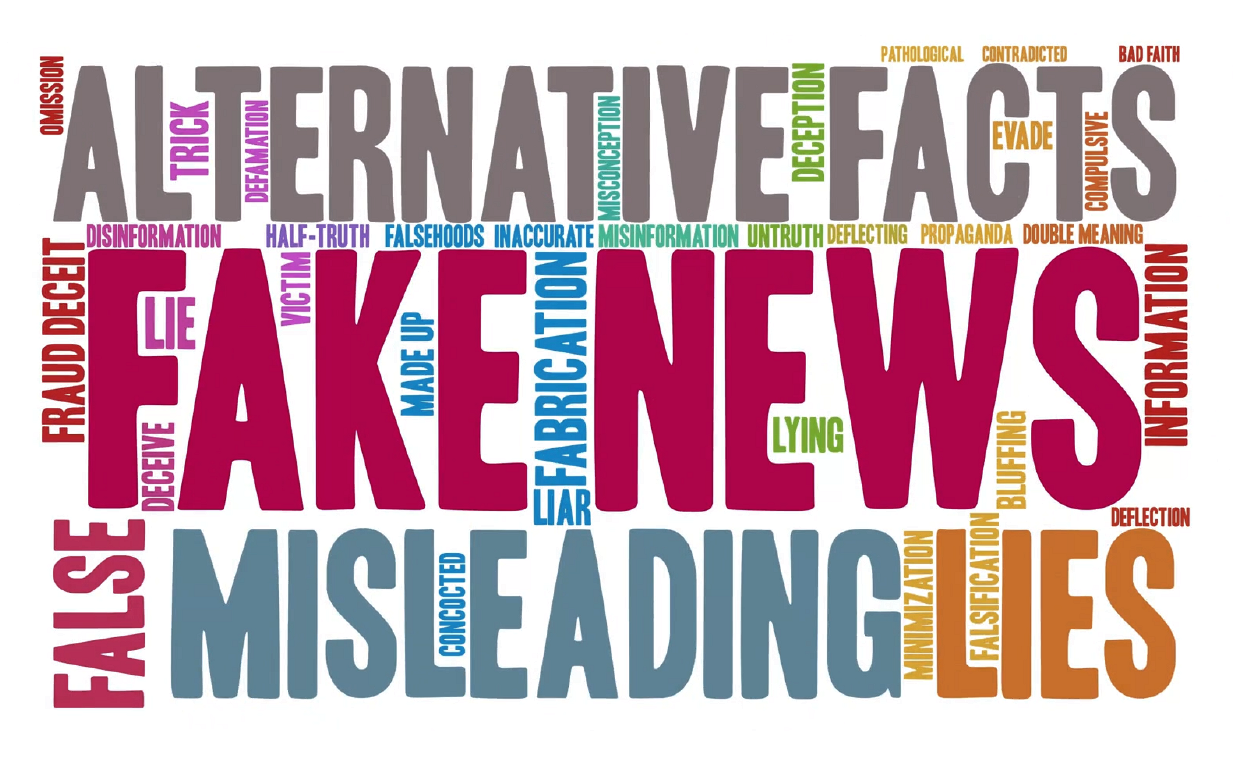
The ACC is tasked with the responsibility to protect AZ ratepayers by weighing the costs and benefits of all state utility requests.
ACC Public Records Lawsuit News
Information & Perspective by Warren Woodward
Sedona, Arizona
If you are following my Public Records lawsuit against the corrupt and incompetent Arizona Corporation Commission (ACC), you may be interested to read what I filed in the Court today. It’s below.
Among other things, lacking an argument of substance, the ACC resorted to whining about my “tenor, tone and specific language.” Poor babies, maybe they should find other work if they can’t handle it. And I always thought specific language was a good thing!:
REPLY TO DEFENDANT’S RESPONSE TO PLAINTIFF’S MOTION FOR IN CAMERA INSPECTION OF RECORDS
Plaintiff, Warren Woodward, in the above titled action, hereby replies to Defendant’s Response (“Response”) to Plaintiff’s Motion for In Camera Inspection of Records (“Motion”). Plaintiff replies to issues and allegations in Defendant’s Response in the order in which they appear in that Response.
Defendant stated the Arizona Corporation Commission (ACC) “… opposes the motion to the extent that it seeks to compel production of any of the withheld documents.” (p. 2, lines 4-6) It is unclear whether Defendant is referring to secreted documents or documents illegally redacted or both, but clearly Defendant has a legal obligation under A.R.S. § § 39-121 to 39-121.03 (the “Arizona Public Records Law”) to produce those documents. Defendant, in Defendant’s Response, has admitted to what Defendant euphemistically terms ‘mistakes and clerical errors’ so on that basis alone the Court would need to examine all the “withheld documents.” Plus, as Plaintiff has pointed out repeatedly both in his Motion and Complaint for Special Action (“Complaint”), at this point, without a thorough criminal investigation, no one can be certain Defendant has supplied or will supply all Documents relevant to Plaintiff’s Public Records Request (“Request”).
Defendant submitted a disc to both the Court and Plaintiff that Defendant claims is a disc “… containing only those documents on which redactions were made ….” (p. 2, line 8) Defendant’s disc is short some 32 redacted documents. That is easily deduced by tallying up the number of pages in Defendant’s Index of Records and comparing it to the number of pages in Plaintiff’s more accurate Index of Records (see Exhibit R of Plaintiff’s Motion, and please excuse a typo in same; under the heading “Privilege: Attorney Client” at Part 18 it should read “26-28,” not “-28”). Plaintiff has maintained in both his Motion and Complaint that Defendant simply cannot be trusted to get a Public Records Request right. Defendant’s incomplete disc is just more proof of that.
Defendant stated:
Plaintiff’s major objection to the Commission’s production, as stated in the body of his Motion, relates to the Commission’s assertion of legislative privilege or state of mind as a basis for redacting certain portions of the documents provided in response to his request.
(p. 3, lines 7-10)
Note that by the phrase “legislative privilege or state of mind” Defendant is still trying to fuse “state of mind” with legislative privilege as though they are interchangeable. They are not. As Plaintiff proved in his Motion, there is simply no “state of mind” redaction permitted in Arizona. Furthermore, if Defendant had wanted to redact for legislative privilege then Defendant should have done so and not redacted for “state of mind,” then later try to cover tracks by attempting to reclassify those redactions as legislative privilege. Defendant argued at length attempting to prove there is legislative privilege in Arizona. If there is and it’s so enshrined in law, then why didn’t Defendant redact for that in the first place instead of inventing “state of mind?”
On page 3 of Defendant’s Response, Defendant criticizes Plaintiff’s reliance on Rigel Corp. v. State, 225 Ariz. 65, 234 P.3d 633 (App. Div. 1, 2010). On page 4 Defendant relies on federal law under FOIA for its argument on privilege, citing Gravel v United States, 408 U.S. 606, 625 (1972). But Rigel at ¶ 41 makes clear that no deliberative privilege exists under Arizona law and at ¶ 40 states that federal law under FOIA does not apply in Arizona by analogy or otherwise.
Using a very convoluted argument, Defendant goes on to argue at length that the public records Plaintiff sought regarding the Arizona Department of Health Services (“ADHS”) “smart” meter study involved ratemaking because “smart” meters play a role in determining rates, and that since ratemaking is then allegedly involved then Defendant can invoke legislative privilege. It appears that in arguing such, Defendant is seeking a “Carte Blanche” to redact almost anything Defendant wants to redact. But as recently as 2010, Rigel at ¶ 41 stated, “Arizona recognizes a legal presumption in favor of disclosing public records.” Defendant’s argument turns Rigel upside down. Furthermore, one would think that, if indeed there is a legislative privilege regarding ratemaking communication, then it would be limited to actual discussions of rates, e.g. actual dollar amounts, and not the infinitely broad interpretation Defendant seeks. And again, Defendant did not invoke legislative privilege anyway. Defendant invoked “state of mind” which is not provided for under Arizona law. Additionally, as pointed out in both Plaintiff’s Complaint and Motion, after Plaintiff’s initial Request, Plaintiff gave Defendant two additional chances to correct Defendant’s bogus “state of mind” redactions yet Defendant remained incorrigible regarding those redactions.
Defendant euphemistically stated:
First, with respect to the allegedly inaccurate Index of Records, it is true that there has been a miscommunication regarding the pagination reflected in the Index.
(p. 8, lines 1-2)
“Miscommunication?” Actually there was no communication. Defendant sent Plaintiff the Index of Records without any indication whatsoever that the Index did not correspond to the two discs of records that Plaintiff had received as a result of his Request (see Motion, Exhibit P). Additionally, as previously pointed out, correctly paginated or not, the Index is still a fraudulent document in that some 32 documents are missing from it. Thus, the matter of the Index is hardly “trivial” (as characterized by Defendant at page 3, line 26 of Defendant’s Response).
A minor note here: Defendant mentioned that Plaintiff had not requested an Index of Records (p. 8, lines 23 & 24). That’s true. Plaintiff did not make that request because, after dealing with the ACC since 2011, Plaintiff knew the Index would be botched and only create more work for Plaintiff in untangling it. Plaintiff was correct on both counts.
Rationalizing Defendant’s secreting of the Jerich/Humble email exchange, Defendant stated:
That the Commission didn’t subsequently provide Plaintiff with an additional copy of documents he already possessed does not constitute a denial of access under A.R.S. § 39-121.02(A). The Commission, an agency of the State of Arizona, made an honest mistake – it missed an email exchange – but Plaintiff got the documents from ADHS, also an agency of the State of Arizona. Plaintiff suffered no deprivation or damage, and thus he has no business burdening the Court with it. The law does not treat with trifles.
(p. 8, lines 15-21)
Several things are wrong with the above. First, Defendant has attempted to create a provision of Arizona Public Records Law that does not exist in either statutory or case law. The statute Defendant cited, A.R.S. § 39-121.02(A), states:
A. Any person who has requested to examine or copy public records pursuant to this article, and who has been denied access to or the right to copy such records, may appeal the denial through a special action in the superior court, pursuant to the rules of procedure for special actions against the officer or public body.
Clearly A.R.S. § 39-121.02(A) does not state – nor do any of the other sections of Arizona Public Records Law – that if a public records request is fulfilled by one State agency then other State agencies are not obligated to comply with a similar request.
Additionally, regarding the Arizona Public Records Law, whether Plaintiff suffered “deprivation or damage” is not the legal issue. The legal issue is whether Plaintiff received all the documents relevant to his request. Even after Plaintiff called Defendant’s attention to the omission twice, Plaintiff did not receive the Jerich/Humble exchange from Defendant until a year later, and then only after a Complaint for Special Action was filed against Defendant by Plaintiff (see Complaint, ¶ ¶ 12, 15, 16, 28 & 30).
So, Defendant’s “honest mistake” excuse fails. An “honest mistake” would be followed by a prompt apology along with providing the missing documents. Instead, Plaintiff was stonewalled.
Plaintiff’s greater concern over this secreted email exchange has been expressed earlier in both his Complaint and Motion. That is, if Defendant has secreted these documents from Plaintiff and is so demonstrably recalcitrant, what else is missing? How many more “honest mistakes” are there? As Plaintiff proved in the Appendix of his Motion, there were in fact more documents missing from the response to his Request. So the matter of the missing Jerich/Humble exchange is definitely not a “trifle” as Defendant has characterized it, and if anyone is “burdening the Court” it is Defendant who is burdening the Court with a very lame excuse for not complying with Arizona Public Records Law.
Next in Defendant’s Response is the accusation that Plaintiff’s charge that Defendant has secreted records is “unhinged.” (p. 9, line 7) Defendant based this accusation on a completely false narrative. It’s as if Defendant did not even read or comprehend the Appendix of Plaintiff’s Motion.
Defendant’s argument focused on a blank page Plaintiff received as a result of his Request, and Defendant, as with the missing Jerich/Humble exchange, attempted to paint the issue as another honest mistake. Yet recall that Plaintiff gave Defendant two more chances to get his Public Records Request right and Defendant did not. But what’s more important is that Defendant either missed, or did not want to acknowledge, the greater issue here, and that is this: Defendant responded to the missing blank page issue, not by providing a corrected version, but by supplying an entirely different missing document that Plaintiff had no idea was missing until he received it from Defendant on March 7, 2016! As Plaintiff stated in his Motion:
Defendant also wrote [in Defendant’s March 7, 2016 letter; Motion, Exhibit S]:
“In addition, as you note in your Special Action Petition, it appears that one page of the documents provided to you was inadvertently submitted in blank. I have located that page and am sending it to you at this time. I have made redactions as shown on the document for state of mind communications and company sensitive information.”
Despite clearly spelling out to Defendant exactly which document was blank, Defendant got it wrong anyway. The only reference to a blank page in Plaintiff’s Complaint is at ¶ 24. There Plaintiff wrote:
Note also that one of the emails in the thread, the email sent June 3, 2014 at 4:38 PM from “bizhub_751” to Maureen Scott, was one in which in Plaintiff’s version (seen reprinted in Exhibit G as well as in Exhibit B, Part 1, pp. 5 & 6) there was no message whatever, just a blank piece of paper.
Yet as can be seen in Exhibit S, Defendant did not supply any email sent June 3, 2014 at 4:38 PM from “bizhub_751” to Maureen Scott. Instead, Defendant supplied a different missing document, a January 31, 2014 email thread involving Brenda Burns, Kelly Aceto and Thomas Galvin. That makes two documents that Defendant had secreted from Plaintiff, in addition to the Jerich/Humble one [the other is explained at Motion, pp. 9 & 10]. Plaintiff wonders, then, how many other missing, secreted documents there are, and Plaintiff again calls for a criminal investigation as the only way to know for sure what other documents Defendant is secreting. As was pointed out in Plaintiff’s Complaint, secreting Public Records is a felony offense.
Plaintiff finds it curious indeed that Defendant left the matter of these additional secreted documents unaddressed, and instead chose to complain about Plaintiff’s “sharp tone” (p. 9, line 10) stating: “The tenor, tone and specific language of Plaintiff’s pleading borders on defamatory and should not be tolerated by this Court.” (p. 9, lines 10-12) It would appear that Defendant has chosen to “shoot the messenger” instead of deal with the issues. Additionally, Defendant’s tactic is disingenuous since Defendant seems to have no problem using words like “ludicrous,” “defamatory” and Plaintiff’s personal favorite, “unhinged.” Throughout, Plaintiff has simply called it like he sees it, and at no time has Plaintiff meant any disrespect to the Court.
Speaking of “ludicrous,” Defendant stated:
By January22, 2015, the Commission had submitted nearly 3,000 pages of documents. To argue that failure to produce three pages of documents that Plaintiff already possessed as a basis to find the Commission’s response untimely is ludicrous. Equally dubious is a claim that the Commission’s response is untimely because one page out of the 3,000 did not scan properly and was left blank, to be provided for later.
(p. 9, lines 14-19)
“To be provided for later?” Oh, so Defendant knew back in January of 2015 when Defendant was responding to Plaintiff’s Request that Plaintiff would be filing a Public Records lawsuit well over a year later and had planned all along to provide the page then? Not likely! Again, despite being given two extra chances to respond properly to Plaintiff’s Request, despite being assured by ACC Chief Counsel Janice Alward that she took “allegations of this nature seriously” and would “personally review the redacted documents” (Complaint, Exhibit E), it was not until Plaintiff filed his Complaint that secreted documents started appearing, and, as Plaintiff has pointed out, it was more than the four pages Defendant mentioned above. As can be seen in Exhibit S of Plaintiff’s Motion (and as described in the Appendix of same), there were three additional pages of secreted documents that surfaced, and then the blank page Defendant is so focused on did not appear until supplied via the disc that accompanied Defendant’s Response (see Response, p. 9, lines 4-6). Plaintiff wants to know what else is missing!
Additionally, note that, throughout, Defendant has stressed how many pages of documents were provided to Plaintiff. “3,000” or “nearly 3,000” is mentioned five times. By doing so, it appears Defendant is attempting to minimize the importance of the missing ones. Legally however, it does not matter whether one document is missing out of 3,000, 300, 30,000, or 3. Legally, Defendant is required to produce all documents, and promptly. It’s that simple.
Defendant is clearly “swinging for the fences” in Defendant’s Conclusion by asking for the Court to decline jurisdiction. As Plaintiff has shown here and in his Complaint and Motion, Defendant has violated Arizona Public Records Law in multiple ways and must be held responsible.
RESPECTFULLY SUBMITTED this 15th day of April, 2016.
By
Warren Woodward

Read www.SedonaEye.com for daily news and interactive views!

